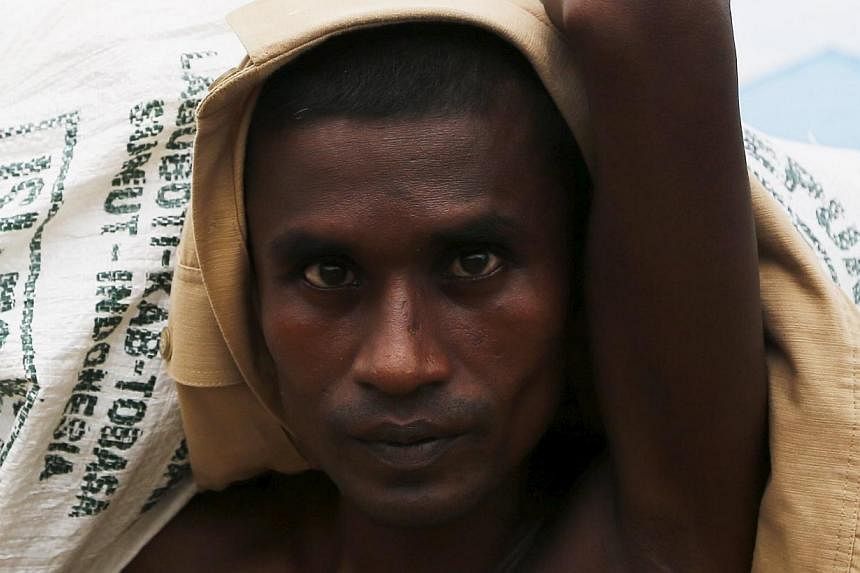ROHINGYA refugee Umai Somida, 15, and her two younger sisters have only one plan: go to Malaysia to reunite with their two older brothers who are construction workers in Kuala Lumpur.
The decision for the three young sisters - the other two are 13 and 11 - to go to Malaysia was made in 2012 when their parents were killed in a mob attack in their village of Lolbina in the Maungdaw area in Myanmar.
"They came at night," Umai told The Straits Times in Kuala Langsa in Aceh.
"We hid to avoid the attacks. They slit our parents' throats."
More than 600 Rohingya and Bangladeshi refugees have been staying here after they were rescued by local fishermen off the eastern coast of Sumatra island last Thursday night.
One of the girls' older brothers has been working in Malaysia for seven years and the other, for five years.
Since 2012, the brothers have been saving up to finance the passage of their sisters from Myanmar to Malaysia, for an equivalent of US$2,000 (S$2,600) each.
The girls, together with hundreds of other Rohingya and Bangladeshi migrants, did not make it to Malaysia as their boat's engine stalled off Aceh after more than two months at sea.
"We just want to go to Malaysia. We are not turning back. We don't want to stay in Aceh either," Umai said.
She and her sisters are among the refugees in Kuala Langsa who want to stick to their plan of heading to Malaysia.
There are about 900 Rohingya refugees, mostly in Aceh, and more than 400 Bangladeshis, who are mainly in Kuala Langsa.
Indeed, Rear-Admiral Somchai Na Bangchang of the Royal Thai Navy said migrants on a boat found off the Thai coast last Thursday did not want to land in Thailand. Instead, they wanted to go to Malaysia or Indonesia, reported Reuters.
The Rohingya refugees in Aceh still hold a chance of going to Malaysia, but the Bangladeshis there face repatriation as illegal immigrants.
Mr Jeff Savage, a Jakarta-based senior protection officer with the United Nations High Commissioner for Refugees (UNHCR), told The Straits Times: "The Rohingyas are not able to go home.
"The Myanmar government does not recognise them as nationals, so UNHCR will register all of them for refugee status and process their cases and try to find a temporary solution for them in Indonesia."
Bangladesh's Ambassador to Indonesia Md Nazmul Quaunine pledged on Sunday to work with the local government and UNHCR to facilitate repatriation. However, some, like Mr Muhammad Syafirullah Salim, 36, do not want to go back.
The mosque keeper, who earned the equivalent of RM500 (S$185) a month, had left his wife and two young daughters behind to seek a better job in Malaysia.
His boat trip, which cost US$2,500, was mostly financed by his mother who sold off the lands, although his wife's parents also chipped in.
"We are poor. I have no money left. I have nothing back home. Why would I go back home?" he told The Straits Times.
But Ms Sokutara, a 24-year-old Rohingya mother of a four-year-old boy, said she would stay in Aceh or anywhere that is safe.
With help from a local resident who visited the camp, she spoke on the phone with her husband who is in Malaysia.
Ms Sokutara told The Straits Times: "I'm not going to be on a dangerous boat trip anymore. My husband said to stay wherever it is safe, be it in Indonesia or any country.
"He will come to live with us."




